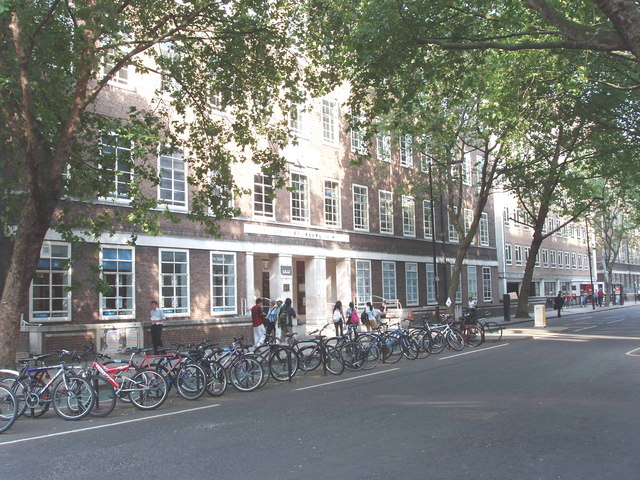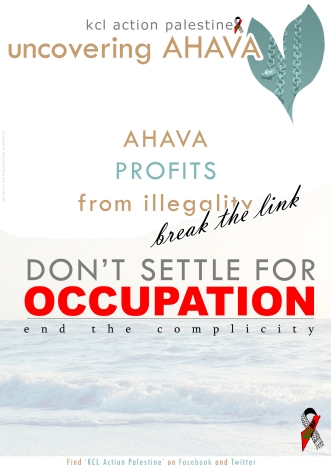BDS Movement
The University of London Union (ULU) has voted 10-1 to institute and campaign for Boycott, Divestment and Sanctions (BDS) in support of Palestine. The motion called for “thorough research into ULU investments and contracts” with companies guilty of “violating Palestinian human rights” as set out by the Palestinian Boycott National Committee (BNC).

Ashok Kumar, Senate member for LSE, speaking in favour of the motion, argued, “We have precedents for boycotting campaigns at ULU, especially with South Africa and the boycott campaign over Barclays bank, that supported the Apartheid regime. We are now responding to the Palestinian call for civil action in support of their fight against racism.”
The motion also called on other students’ unions to join in the campaign for Palestinian human rights. ULU is the largest students’ union in Europe with over 120,000 members from colleges across London. ULU senate consists of the presidents of the 20 students unions reprsenting every University of London University. James Haywood, President-elect at Goldsmiths Students’ Union, stated, “We are delighted that this motion has passed, and with such a clear vote as well. We have seen throughout history that boycotts are a crucial nonviolent tactic in achieving freedom, and target institutions, not individuals.”
Sean Rillo Raczka, incoming ULU Vice President, “I’m delighted that ULU has passed this BDS policy on Israel. We stand in solidarity with the oppressed Palestinian people, and as Vice President next year I will ensure that the University of London Union does not give profit to those denying the human rights of the Palestinians”
The text of the motion passed is as follows:
Union notes:
1) to boycott is to target products, companies and institutions that profit from or are implicated in, the violation of Palestinian rights
2) to divest is to target corporations complicit in the violation of Palestinian human rights, as enshrined in the Geneva Convention, and ensure that investments or pension funds are not used to finance such companies
3) to call for sanctions is to ask the global community to recognise Israel’s violations of international law and to act accordingly as they do to other member states of the United Nations
5) that Israel continues to build a 8 metre high “annexation” wall on Palestinian land inside the post-1967 occupied West Bank, contravening the July 2004 ruling by the International Court of Justice (the highest legal body in the world, whose statutes all UN members are party to) and causing the forcible separation of Palestinian communities from one another and the annexation of additional Palestinian land.
6) that within the occupied West Bank and East Jerusalem, Israel continues a policy of settlement expansion in direct violation of Article 49, paragraph 6 of the 4th Geneva Convention which declares “an occupying power shall not deport or transfer parts of its own civilian population into territories it occupies.” 6) that the Gaza Strip continues to face a suffocating siege from land, sea and air by Israel, and continues to suffer military incursions into the territory by the Israeli army
7) that Palestinians living in Israel continue to suffer third-class citizenship and are heavily discriminated against from healthcare, education, landownership and in many cases having ‘unrecognised’ villages completely demolished
8 ) that there continues to be millions of Palestinian refugees throughout the world who are racially discriminated against by not being allowed to return to their homes in Israel and the Occupied Territories, which is legally recognised under international law, including United Nations resolution 194.
9) that ULU and the NUS nationally adopted the call for BDS in the 1980s when it was called for by South Africans fighting racism and apartheid
10) that Ronnie Kasrils, the Jewish South African Minister of Intelligence said “The boycotts and sanctions ultimately helped liberate both blacks and whites in South Africa. Palestinians and Israelis will similarly benefit from this non-violent campaign that Palestinians are calling for.”
11) that the call for BDS has come from over 170 Palestinian civil society organisations, including student organisations, as well as organisations within Israel and across the global; and that the campaign is founded on the basis of anti-racism and human rights for all
Union Believes:
1) that unions should work to support the Palestinian people’s human rights and uphold international law
2) that BDS is an effective tactic, which educates society about these issues, economically pressures companies/institutions to change their practices and politically pressures the global community
3) that unions have a moral responsibility to heed the call of oppressed peoples, like we did so proudly during the BDS campaign to end South African apartheid
4) that the BDS movement has united human rights campaigners from different nationalities, races, religions and creeds across the world
Union Resolves
(1) Institute thorough research into ULU contacts with investments and companies,including subcontractors, that may be implicated in violating Palestinian human rights as stated by the BDS movement
(2) Pressure University of London universities and affiliate students’ unions to divest from Israel and from companies directly or indirectly supporting the Israeli occupation and apartheid policies;
(3) Promote students’ union resolutions condemning Israeli violations of international law and human rights and endorsing BDS in any form;
(4) Actively support and work with Palestine solidarity organisations such as the BDS Movement, Palestine Solidarity Campaign, Jews for Justice for Palestinians, British Committee for Palestinian Universities , Israeli Committee Against House Demolitions
(5) Affiliate ULU to the Palestine BDS National Committee and engage in education campaigns to publicize the injustice of Israel’s discriminatory policies against the Palestinians and its illegal occupation
 Joseph Dana, an American independent freelance journalist currently based in Ramallah (West Bank), was invited to speak at the London School of Economics by the LSE SU Palestine Society about "New directions in Palestinian resistance after the Arab Spring: The UN statehood bid and the internationalization of the Palestinian struggle".
Joseph Dana, an American independent freelance journalist currently based in Ramallah (West Bank), was invited to speak at the London School of Economics by the LSE SU Palestine Society about "New directions in Palestinian resistance after the Arab Spring: The UN statehood bid and the internationalization of the Palestinian struggle".







